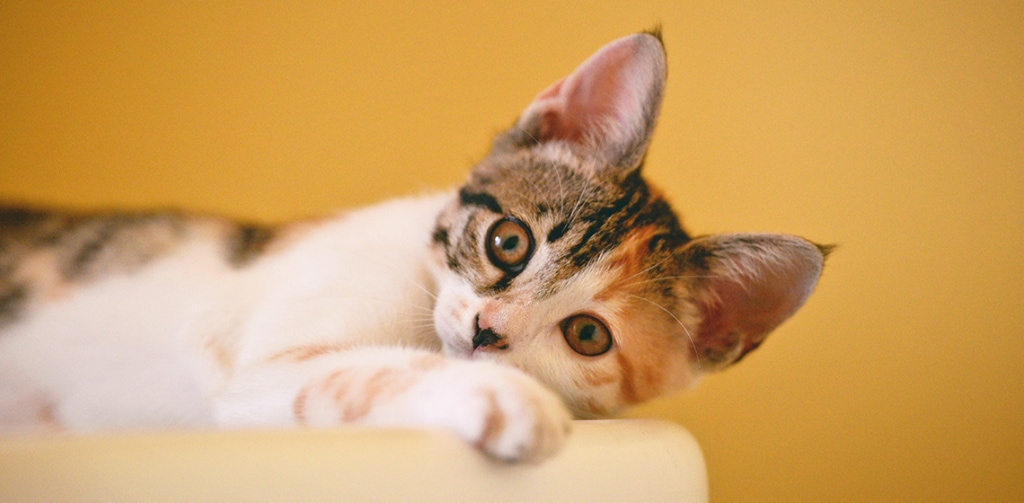It is quite common for cats to periodically get sore or mucky eyes. There are a variety of causes of these signs, and some can be temporary like allergies or irritation whereas other causes like infection, ulceration, or trauma usually require treatment.
Severity:
Mild to moderate but can become severe
Table of Contents
Key points
- Some types of eye infection can be prevented by vaccination
- Not all sore or runny eyes are caused by infection
- A veterinary examination will be needed to check the eye for damage and make a diagnosis
- Most cases resolve with treatment, however some cases can persist and flare up in the future
- Some causes are contagious and can pass between cats
Common in:
Unvaccinated cats and kittens, outdoor cats, flat-faced and long-haired breeds.
Symptoms and types
If your cat has an eye infection, both or just one eye may be affected. You might notice that the whites of their eyes seem red or ‘bloodshot’ or their inner eyelids and the conjunctiva (pink tissue surrounding the eye) may be red and swollen.
Cats have third eyelids at the inner corner of each eye and in cases of eye infection or inflammation, these may be more visible and swollen.
You may notice your feline friend squinting, or holding their eye shut due to discomfort, and there may be watery, mucousy or even yellow pus-like discharge from their eyes.
Mild eye infections can occur with no other symptoms and may be caused by viruses or bacteria.
However, sometimes even viral eye infections can cause your cat companion to feel off color, sneeze, go off their food, or run a fever.
More serious eye infections can occur when there is damage to the surface layer of the eye, known as a corneal ulcer, which may be due to a scratch or other trauma, or reduced tear production and increased exposure.
Understanding the diagnostics
If your veterinarian suspects that your cat has an eye infection, they will first examine both eyes with a light instrument known as an ophthalmoscope. They can then check for any foreign material in the eye, check the pupils’ response to light, and assess the overall eye health.
They may also use a dye eyedrop which will show any damage to the eye surface. If your cat has other symptoms or is under the weather, your vet may do a full examination and take their temperature.
If the eye infection is deemed mild and uncomplicated, your veterinarian may choose to treat the symptoms with medication and assess the response.
However, if the signs are severe or they do not improve with treatment a swab or blood test may be used to decide what is causing the infection.
Learning about the causes
1. Viral causes
Viral causes of eye infections include Calicivirus, Herpesvirus, and Torovirus. Calicivirus and herpesvirus can stay inside your cat and recur at times of stress. These viruses are included in the booster vaccinations recommended by your veterinarian.
2. Bacterial causes
Bacterial causes include Chlamydophila, a bacterium that is sometimes included in cat booster vaccinations. However, most bacterial infections are ‘opportunistic’ infections with bacteria that take advantage of an eye that is already compromised by infection or inflammation.
3. Other causes
Sometimes, it can appear that eyes are inflamed but the underlying cause is not an infection. Allergies, irritation, foreign material in the eye, or even some cancerous processes are amongst the other causes of similar symptoms.
Best treatment options
Most cases of eye infections can be treated with eye drops containing an antibiotic and an anti-inflammatory to deal with any bacterial infection and help with discomfort.
If a persistent or chronic case is swabbed and a viral cause is found, anti-viral treatments can also be used. If the pain is severe then your veterinarian may provide extra pain relief.
During treatment, it is important to keep the eyes clean by wiping any discharge away with clean, wet cotton wool, soaked in cooled, boiled water.
Home remedies and their effectiveness
Sadly, there is no substitute for a veterinary examination and treatment when it comes to eye problems. The risks of permanent damage to the eye are too great not to seek professional advice.
Never use out-of-date medication, or medication prescribed for other pets or humans.
If you are unsure whether a medication you already have might be appropriate, always discuss it with your veterinarian first.
When to see a vet
If your cat’s eyes are still red or runny after twenty four hours of cleaning them regularly with cooled, boiled water, or if they are squinting, painful or acting unwell in other ways, it is time to get your feline friend checked by a veterinarian without delay.
If you suspect any trauma to the eye, or if the eye is either closed or appears to be bulging, It is important to seek veterinary help immediately.
Cat-eye infections can worsen quickly. If your cat is squinting or rubbing at his eye, schedule an appointment now—early intervention can save his sight!
FAQ
Occasionally mild infections can resolve with regular cleaning and time, however the majority require medication. Speaking to your veterinarian for advice on whether your cat needs to be seen immediately would be recommended.
If your cat has an eye infection, their eyes may seem to be red and inflamed and they may squint or hold their eyes shut. Discharge from the eyes and visible third eyelids are other symptoms you might see with an eye infection.
To prevent the viral causes of eye infections, you should keep your cat up to date with their vaccinations. If your cat has naturally bulging eyes, a flat face, or long facial hair, then keeping the hair trimmed and the face clean will help to prevent further infections.
If your cat is showing signs of an eye infection, it is important not to delay in getting veterinary advice, in case it is something serious. If the symptoms are mild and your cat is otherwise well then cleaning the area regularly with cooled, boiled water for twenty-four hours may lead to improvement.
After an examination, your veterinarian may prescribe eye drops containing antibiotics and anti-inflammatories. They may also recommend extra pain relief or anti-viral medication depending on the cause and severity.

Dr. Hannah Godfrey MRCVS graduated from the Royal Veterinary College in 2011. Although she initially worked in mixed practice treating all species, she found a love for small animal work and has worked exclusively with dogs and cats since 2014. She lives in Wales with her partner, son, and two cats (named Poppy and Ashton Kutcher), and writes comedy fiction in her spare time.








